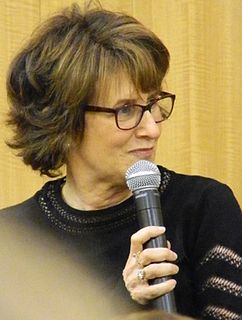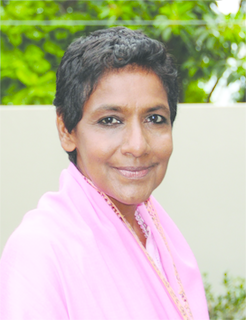A Quote by Delia Ephron
In your standard-issue family, of which few remain, but on which our expectations are still based, there are parents and there are children. The way you know which are which, aside from certain size and age differences and despite any behavior similarities, is that the parents are the bossy ones.
Related Quotes
Parents ought, through their own behavior and the values by which they live, to provide direction for their children. But they need to rid themselves of the idea that there are surefire methods which, when well applied, will produce certain predictable results. Whatever we do with and for our children ought to flow from our understanding of and our feelings for the particular situation and the relation we wish to exist between us and our child.
There was an age in which it was clear to me that my parents weren't perfect, but then there was an age at which I had empathy for that. And that was through therapy, probably. You have to rebuild and you also have to grow in your understanding of whatever it is your parents are facing, and that takes a major, profound shift of perspective from being a child.
In an age in which infidelity abounds, do we observe parents carefully instructing their children in the principles of faith which they profess? Or do they furnish their children with arguments for the defense of that faith? ...it is not surprising to see them abandon a position which they are unable to defend.
I feel very strongly that I am under the influence of things or questions which were left incomplete and unanswered by my parents and grandparents and more distant ancestors. It often seems as if there were an impersonal karma within a family which is passed on from parents to children. It has always seemed to me that I had to answer questions which fate had posed to my forefathers, and which had not yet been answered, or as if I had to complete, or perhaps continue, things which previous ages had left unfinished.
In today's world parents find themselves at the mercy of a society which imposes pressures and priorities that allow neither timenor place for meaningful activities and relations between children and adults, which downgrade the role of parents and the functions of parenthood, and which prevent the parent from doing things he wants to do as a guide, friend, and companion to his children.
I was appalled at how children had become the focus and gravitational center of the nuclear family around which parents orbited instead of the traditional arrangement in which children orbited around their parents. This is a huge change because a critical job in early childhood is to get children weaned away from the total narcissism normal to infancy. With the children as the center of the family's actions and decisions, narcissism is at a minimum prolonged and may never significantly decline.
'Our parents' generation had it a lot tougher than we did. They had to live through the Depression, World War II, and then they had to, you know, try to pick up the pieces of their lives and bring up their children. And, it was a great example for us. I guess we grew up with a certain amount of the ethics our parents had, which is, you know: work hard, make your own way, be independent.
As parents, we should remember that our lives may be the book from the family library which the children most treasure. Are our examples worthy of emulation? Do we live in such a way that a son or a daughter may say, ‘I want to follow my dad,’ or ‘I want to be like my mother’? Unlike the book on the library shelf, the covers of which shield its contents, our lives cannot be closed. Parents, we truly are an open book in the library of learning of our homes.
When I began writing these pages I believed their subject to be children, the ones we have and the ones we wish we had, the ways in which we depend on our children to depend on us, the ways in which we encourage them to remain children, the ways in which they remain more unknown to us than they do to their more casual acquaintances; the ways in which we remain equally opaque to them.
As parents, we can have no joy, knowing that this government is not sufficiently lasting to ensure any thing which we may bequeath to posterity: And by a plain method of argument, as we are running the next generation into debt, we ought to do the work of it, otherwise we use them meanly and pitifully. In order to discover the line of our duty rightly, we should take our children in our hand, and fix our station a few years farther into life; that eminence will present a prospect, which a few present fears and prejudices conceal from our sight.
Children, like dogs, have so sharp and fine a scent that they detect and hunt out everything--the bad before all the rest. They also know well enough how this or that friend stands with their parents; and as they practice no dissimulation whatever, they serve as excellent barometers by which to observe the degree of favor or disfavor at which we stand with their parents.
Despite the long-term reduction in familial roles and functions, we believe that parents are still the world's greatest experts about the needs of their own children. Virtually any private or public program that supports parents, effectively supports children. This principle of supporting family vitality seems to us preferable to any policy that would have the state provide children directly with what it thinks they need.
You must learn to look at people who are angry with you straight in the eye without getting angry back. When children see their parents treating them this way, they then recognize the parents' authority. It speaks louder than words. Their new respect for the parents is as good for them as it is for the parents. It never works to demand respect of children. It must be given willingly as a result of strength of good character in the parents, which is manifested by their non-reaction to stress in the children.



































